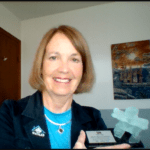The Power of Curiosity
This is the second blog post in a series on mindset. Last week I looked at decluttering your mind to feel more at peace, less stressed and open to new information. This week let’s explore The Power of Curiosity Unlocking Creativity Through Better Questions.
Nine powerful tips and three action steps you can take immediately.
Let’s explore how cultivating curiosity and asking the right questions can drive creative thinking and innovation. By understanding the art of inquiry, individuals can foster deeper insights, solve problems more effectively, and gain fresh perspectives.
1. Embrace a beginner’s mindset
To ignite curiosity, approach problems as if you were a beginner, even if you’re an expert. When you set aside preconceived notions, you open yourself to new perspectives and ideas. This fresh view allows you to ask questions that challenge assumptions and lead to new insights.
2. Ask Open-Ended Questions
Curiosity thrives on open-ended questions that encourage exploration and deeper thinking. Avoid questions that can be answered with a simple ‘yes’ or ‘no.’ For example, instead of asking ‘Is this idea feasible?’ try ‘How might we make this idea feasible?’
3. Practice Active Listening
Curiosity is not just about asking questions but also about truly listening to the answers. Practice active listening by focusing fully on what the other person is saying without interrupting or planning your response. This will help you uncover insights that can inspire new ideas.
4. Challenge Your Comfort Zone
Comfort zones can stifle curiosity by keeping you in familiar routines. Try stepping into new situations or tackling problems you’ve never encountered before. When you expose yourself to the unfamiliar, your mind naturally starts asking questions, boosting creativity.
5. Adopt a Growth Mindset
A growth mindset fuels curiosity by viewing challenges as opportunities to learn rather than obstacles. Celebrate mistakes as valuable lessons and ask questions like, ‘What can I learn from this?’ and ‘What would I do differently next time?’ to enhance creativity.
6. Surround Yourself with Diverse Perspectives
Interact with people from different fields, cultures, or life experiences to broaden your thinking. Diversity of thought prompts questions you might not have considered and inspires creative solutions. Embrace conversations that challenge your usual way of thinking.
7. Harness the Power of ‘Why?’ and ‘What If?’
Asking ‘Why?’ and ‘What if?’ questions can open doors to innovative thinking. These questions help break down complex problems and imagine new possibilities. For example, ask ‘Why does this process work this way?’ and then ‘What if we tried it differently?’
8. Maintain a Curiosity Journal
Document your daily questions, thoughts, and observations in a curiosity journal. This habit encourages mindful inquiry and helps you track the evolution of your ideas over time. Reviewing your entries can reveal patterns and potential solutions.
9. Make Time for Unstructured Exploration
Creativity often emerges when you’re free to explore without rigid goals or schedules. Dedicate time to reading, experimenting, or simply observing your surroundings. The more you indulge in curiosity-driven activities, the sharper your creative thinking becomes.
Fast Action Steps
1. Start Each Day by Asking One Open-Ended Question
Begin your day by asking an open-ended question focused on something you’d like to explore. For instance, ‘What opportunities for improvement could I find today?’ This primes your mind to think creatively throughout the day.
2. Engage Someone with a Different Perspective
Have a conversation with someone who has a different background or expertise from your own. Ask questions about their experiences or viewpoints to broaden your perspective and spark fresh ideas.
3. Experiment with a ‘What If’ Scenario Today
Choose a routine or process you follow daily and ask, ‘What if I did this differently?’ Experiment with the new idea to see where it leads. This simple practice can trigger creative breakthroughs.
I couldn’t possibly have covered everything on this topic. It is a good way to start expanding your mind to new opportunities.
Which tip are you going to try first? Let me know in the comments.
 Julie Stobbe is the 2024-2025 winner of the Harold Taylor Award for outstanding contributions to the organizing industry and Professional Organizers in Canada. As a Trained Professional Organizer and Lifestyle Organizing Coach, she brings happiness to homes and organization to offices, coaching you virtually using Zoom. She has been working with clients since 2006 to provide customized organizing solutions to suit their individual needs and situations. She uses her love of teaching to reduce clutter, in your home, office, mind and time. She guides, mentors and supports you to be accountable for your time, to complete projects and to reach your goals. If you’re in a difficult transition Julie can coach you to break-free of emotional clutter constraining you from living life on your terms. Online courses are available to help instruct, coach and support your organizing projects. Get started by downloading Tips for Reorganizing 9 Rooms.
Julie Stobbe is the 2024-2025 winner of the Harold Taylor Award for outstanding contributions to the organizing industry and Professional Organizers in Canada. As a Trained Professional Organizer and Lifestyle Organizing Coach, she brings happiness to homes and organization to offices, coaching you virtually using Zoom. She has been working with clients since 2006 to provide customized organizing solutions to suit their individual needs and situations. She uses her love of teaching to reduce clutter, in your home, office, mind and time. She guides, mentors and supports you to be accountable for your time, to complete projects and to reach your goals. If you’re in a difficult transition Julie can coach you to break-free of emotional clutter constraining you from living life on your terms. Online courses are available to help instruct, coach and support your organizing projects. Get started by downloading Tips for Reorganizing 9 Rooms.
Contact her at julie@mindoverclutter.ca
X – Facebook – Facebook group Organizing Mind and Space




What wonderful suggestions for cultivating curiosity. I love your idea of having a curiosity journal or making time for unstructured exploration.
When growing up, I had a lot of unstructured play and exploration time. While I had some scheduled after-school activities, there was plenty of informal time to wander and discover. There were no scheduled playdates. Instead, we’d go outside and play with neighborhood kids until dinner.
I find curiosity is limited by our phones. Everytime I have a conversation and say I wonder…… some looks it up on there phone and gives me the facts. It is hard to have a conversation that uses imagination these days. Our ability to have time to be curious is restained in many ways.
I love that idea of inviting someone else in for a fresh perspective. It can be so hard to get out the way we’ve always thought about things. For example, I’m thinking of redesigning a room, but it has been set up this way for so long that its hard to imagine it any other way!
I found an app that uses AI to get your creative juices flowing. AI might be an easy way to get curious, do you think?
I think we need to be curious about AI and be willing to try it in ways that we never thought of using it. WIth my clients I am the fresh prespective. I will make a suggestion about a space and they had never thought about it becasue they only saw the room in way. We do need to get out of our own way and see the new possibilities.
This reminds me of the line from Ted Lasso (misattributed to Walt Whitman): “Be curious, not judgmental.” In every example you gave, curiosity opens up opportunities, leading to that growth mindset promulgated by Carol Dweck. If we assume we’re supposed to have all the answers, we never explore possibilities beyond our own experiences and expertise, but curiosity is, as you note, the key to all those creative solutions.
I tend to live my own life more narrowly than what I suggest with clients, so I think I need to explore “What if?” a little more. Thanks for the wise advice!